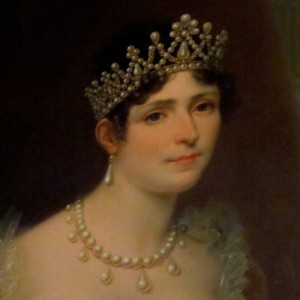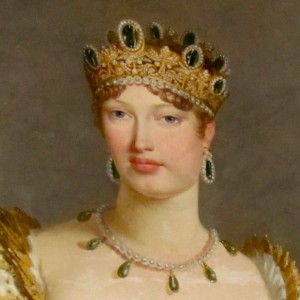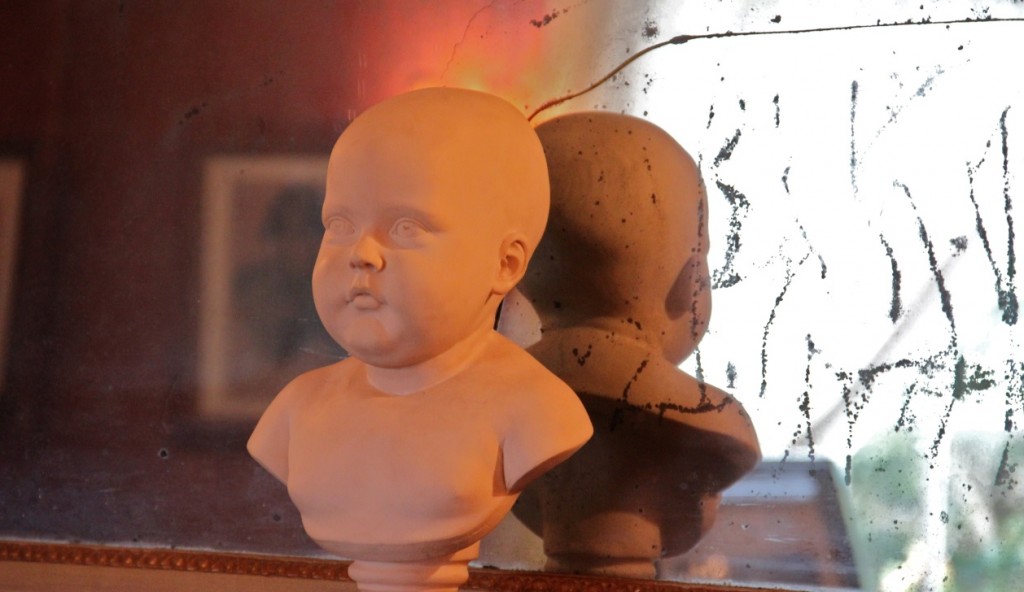 In 1796, Napoleon married Josephine Beauharnais, the widow of an aristocrat who had been guillotined. On their wedding day, Napoleon was twenty-six and Josephine thirty-two. His future looked promising; she was bankrupt. He married for love, she for convenience. They had a tumultuous life together until 1809 when it became clear she could never provide him with a child.
In 1796, Napoleon married Josephine Beauharnais, the widow of an aristocrat who had been guillotined. On their wedding day, Napoleon was twenty-six and Josephine thirty-two. His future looked promising; she was bankrupt. He married for love, she for convenience. They had a tumultuous life together until 1809 when it became clear she could never provide him with a child.
Needing to shore up the future of his empire with a legitimate heir (preferably descended from established royalty), Napoleon reluctantly divorced Josephine and married Archduchess Marie Louise, the 18-year-old daughter of Emperor Francis I of Austria. On March 20, 1811, the new empress gave birth to their son, whom Napoleon designated the King of Rome.
 Napoleon loved to play with his baby boy and showed more affection for the child than the royally-raised empress was able to express. Unfortunately, when France was invaded in 1814, Marie Louise fled with the King of Rome back to her father’s court in Austria. Napoleon, although he lived for seven more years, was never allowed to communicate with either of them again.
Napoleon loved to play with his baby boy and showed more affection for the child than the royally-raised empress was able to express. Unfortunately, when France was invaded in 1814, Marie Louise fled with the King of Rome back to her father’s court in Austria. Napoleon, although he lived for seven more years, was never allowed to communicate with either of them again.
I was surprised to learn recently that the popular British band, The Pet Shop Boys, had dedicated a song to the King of Rome on their 2009 album—one small example of the extraordinary influence Napoleon maintains to this day.


Hi, I found your site while looking for images of Marie-Louise. Just out of curiosity oh how she looked. what astounds me is that not many people will admit to how evil Napoleon was as a human being. I recently read a few books found on Project Gutenburg written many many years ago by people that actually lived when napoleon was alive and each one gives me the impression of a very evil man. Just a thought .
Regards Mariana
He is certainly a controversial figure who had many facets and influences, both good and bad. There are those who say he was forced into defensive (and offensive) wars by European monarchs who were threatened by the new order brought on by the French Revolution. Others say he was motivated purely by his own ambition. No one seems to deny that he saved France from anarchy, bankruptcy, and invasion following the Revolution. He had a lasting impact in advances in administration, education,and establishing principles of meritocracy. And, of course, he was a genius at warfare. What is your interest in Marie Louise?
Pingback: Finding Napoleon » Bonapartes banished from Corsica and France
Pingback: Anniversary of the death of Napoleon’s son, the King of Rome » Finding Napoleon
It appears that Marie Louise really loved Napoleon, up to a point, and intended to join him as soon as possible in Elba – as evidenced by her letters assuring him she was confident her father would agree. It seems to me that emperor Francis knew his daughter’s rather shallow and sensual nature and that it would not be long before distance and lack of communication completely erased Napoleon from her mind. Providing her with a young and attractive “guardian” did not hurt his plans either…
In the end, Napoleon’s love life was tragic for, while Josephine remained his great love, all signs indicate that she was unfaithful from the start of their marriage. Then Marie Louise’s affection quickly turned to another man after Napoleon’s fall. He died a lonely man.
Pingback: Napoleon on St Helena: Reading Books - Finding Napoleon